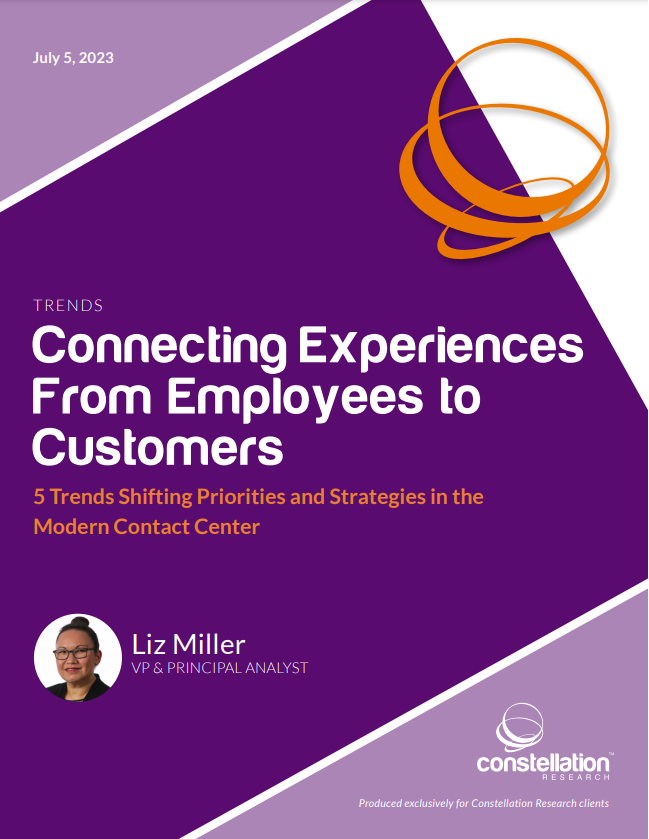Customer experience teams--marketing, commerce, customer service, support and contact center--are pressured to become a unified growth engine driving engagement and revenue opportunities and that's going to force contact center evolution.
Liz Miller, Principal Analyst at Constellation Research, focused on customer experience CX and where the contact center fits in a recent report. The report, "Connecting Experiences From Employees to Customers: 5 Trends Shifting Priorities and Strategies in the Modern Contact Center," examines the state of CX, how customers are in charge of their experience journey and how companies need to evolve to become Experience Enterprises.
Miller wrote about the shift to becoming an Experience Enterprise:
"It is a shift that has been a long time coming as individual teams have evolved from operational deployment teams into centers of functional excellence within an experience-driven enterprise. Sales’ role becomes that of revenue-optimization engine, whereas Marketing helms growth identification and amplification. Service becomes a key communication channel, proactively resolving issues and scaling one-to-one engagements that derive value for customers. Across all functions runs a common call for AI-powered, data-driven solutions to guide customers as well as employees through processes. Guided selling, self-service support, and focused hyperpersonalization to drive brand loyalty and advocacy begin to feel like shared services rather than individual, independent, disconnected functions or teams.
This shift has most acutely impacted the contact center, pushing Service as a whole out of the shadow of being an “operational cost center” and into the light of being a hub for profitable relationship-driving via purpose-built connected experiences. This move, where all three skill sets of CX delivery—selling, servicing, and marketing—must be executed by agents and supervisors, turns the contact center into a strategic growth hub for the experience-driven enterprise."
The upshot: Contact center agents will need to serve as brand ambassadors, storytellers, and sales problem solvers. Enterprises will have to enable those agents.
Many companies aren't there yet due to cloud computing maturity and the expertise needed to leverage AI and functional silos. Miller provides the questions to ask as well as takeaways about where the contact center fits in. Among the takeaways:
- Contact centers are adopting new CX metrics. These metrics include quality of issue resolution, impact on customer lifetime value and revenue outcomes.
- Contact centers are a data goldmine that can be leveraged for AI and new workflows. Customer records with agent notes, history, attitude, preferences, sentiment and other information can provide real insights into product development, marketing and sales.
- Customers make no distinction about functional CX silos within an enterprise.
- Enterprises will need to clearly articulate AI strategies in contact center and credit answers when they are generated by AI.
- The technology behind the contact center isn't always easy to modernize and transform and enterprises may choose to keep on-premises systems.



